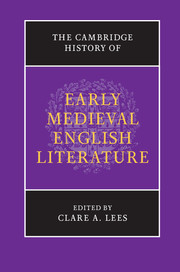Book contents
- Frontmatter
- Contents
- List of Illustrations
- List of Contributors
- Acknowledgements
- List of Abbreviations
- Introduction: literature in Britain and Ireland to 1150
- I WORD, SCRIPT AND IMAGE
- 1 Writing in Britain and Ireland, c. 400 to c. 800
- 2 The art of writing: scripts and scribal production
- 3 Art and writing: voice, image, object
- 4 Of Bede’s ‘five languages and four nations’: the earliest writing from Ireland, Scotland and Wales
- 5 Insular Latin literature to 900
- 6 Bede and the northern kingdoms
- II EARLY ENGLISH LITERATURE
- III LATIN LEARNING AND THE LITERARY VERNACULARS
- Bibliography
- Index of manuscripts
- Index
2 - The art of writing: scripts and scribal production
from I - WORD, SCRIPT AND IMAGE
Published online by Cambridge University Press: 05 February 2013
- Frontmatter
- Contents
- List of Illustrations
- List of Contributors
- Acknowledgements
- List of Abbreviations
- Introduction: literature in Britain and Ireland to 1150
- I WORD, SCRIPT AND IMAGE
- 1 Writing in Britain and Ireland, c. 400 to c. 800
- 2 The art of writing: scripts and scribal production
- 3 Art and writing: voice, image, object
- 4 Of Bede’s ‘five languages and four nations’: the earliest writing from Ireland, Scotland and Wales
- 5 Insular Latin literature to 900
- 6 Bede and the northern kingdoms
- II EARLY ENGLISH LITERATURE
- III LATIN LEARNING AND THE LITERARY VERNACULARS
- Bibliography
- Index of manuscripts
- Index
Summary
The early Anglo-Saxon Church began in the competition between the colonizing ambitions of at least three parties: Roman, Gaelic and Frankish Christians. Although the influence of Rome triumphed and precipitated the English Church into a relationship of institutional and ideological dependency, Gaeldom and Gaul remained potent forces in the cultural history of both the new Church of the English and the nation which later took shape under its influence. Britain was permanently dislocated from the cultural metropolis, Rome, by economy, history and language. As a consequence, for more than half a millennium English writers and copyists found themselves in difficult suspension between different cultural zones, sustained by imports of texts and personnel from a variety of sources, but dependent on the continent for spiritual authority. This is a struggle encapsulated in the history of script. It will have been manifest in the practical and ideological conditions in which each book or document was produced, and elements of it are captured in every specimen preserved for modern scholarly scrutiny. Since the late nineteenth century, at least, the cumulative evidence of manuscripts and palaeography has been used to confirm historiographical models, and to constitute others, particularly concerning cultural production in both Latin and the vernacular in early England.
By the same token, manuscript evidence provides a means to challenge and complicate prevailing orthodoxies. As is well known, the English Church, as a newly established offshoot of the Roman Church, celebrated the late antiquity of Gregory the Great in the seventh and eighth centuries; later, in the tenth, the ascendant West Saxon dynasty patronized the reformed monasticism of the Carolingian and post-Carolingian Franks. Both sets of influences left their mark on individual English scribes who learned to write the capitals of late antique Rome or the minuscule of the Carolingian court and its satellites, but the totality of the surviving manuscript evidence points in a different direction altogether. Here, possibly more clearly than in any other branch of cultural history, the evidence of script suggests that local, initially Gaelic (and perhaps British), influences proliferated and predominated. English-trained scribes trod their own path but morphologically until the twelfth century the bulk of their output is Insular (that is, deriving from professional traditions practised in Britain and Ireland).
- Type
- Chapter
- Information
- Publisher: Cambridge University PressPrint publication year: 2012
- 2
- Cited by



